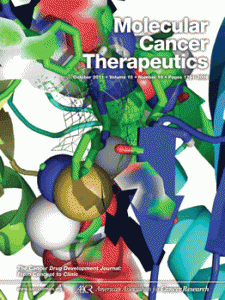Innovation in combination trials of cancer targeted therapies
Academic institutions are now bringing pharma/biotech companies together and facilitating rational combination trials that make solid scientific sense.
Combining at least two targeted drugs looks to be increasingly necessary in order to develop innovative new cancer treatments, where turning off one target may stimulate another, thus both need to be targeted for there to be an overall effect.
However, one company may not have all the pathways and drug targets covered by their portfolio. The result is that companies may have to work together in combination trials with each providing one drug from their portfolio.
That was one of the key messages I took from Gordan Mills (UT MD Anderson Cancer Center) in his recent video interview with Sally Church from Pharma Strategy Blog:
http://youtu.be/FXkcSry6EtQ
Sally Church’s video interview with Professor Mills is well worth watching if you have not already done so.
Not only are universities and research institutions well placed to judge the scientific merits, but as Mills points out they can facilitate things as an independent third party and actively help bring partnerships together. Given that combination therapies may be needed in order to turn off different parts of signaling pathways and cross-talk, I think we are likely to see more of this approach.
It’s going to be new territory for many companies – how to enter into a potential joint venture or alliance? However, if it results in a therapy that works, it is going to be win-win for all parties. It may also improve efficiency in drug development and lead to better use of patients in early stage development.
Some examples of where this is happening already in oncology include AstraZeneca and Merck with their MEK-AKT approach and GSK (MEK) with Novartis (PI3K), to name a couple. This is a new trend we are likely to see more of in the future.
I can see universities hiring alliance managers who have industry experience to ensure these collaborations run smoothly.
 The topic of the industry/academia interface in rational cancer drug development will also be discussed in a plenary session at the forthcoming American Association for Cancer Research (AACR) meeting on Molecular Targets and Cancer Therapeutics (November 12-16, 2011) in San Francisco.
The topic of the industry/academia interface in rational cancer drug development will also be discussed in a plenary session at the forthcoming American Association for Cancer Research (AACR) meeting on Molecular Targets and Cancer Therapeutics (November 12-16, 2011) in San Francisco.
How academia can better help the pharma/biotech industry bring innovative, rational drug combinations to market is a topic that I think we will be reading more about in coming months.